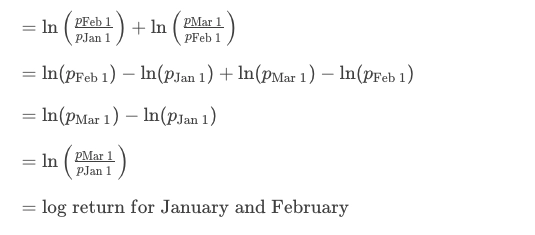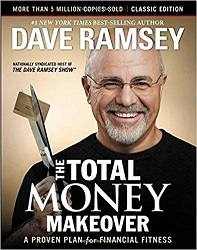Wealth management is the process of managing one's financial assets, such as investments, retirement plans, estate planning, tax strategies, and more. Wealth management products are tools or services that help individuals or organizations achieve their financial goals and optimize their wealth.
There are many types of wealth management products available in the market, ranging from traditional ones like mutual funds, stocks, bonds, and insurance, to more innovative ones like robo-advisors, cryptocurrencies, peer-to-peer lending, and crowdfunding. Each product has its own features, benefits, risks, and costs, and choosing the right one depends on various factors, such as the investor's profile, preferences, objectives, time horizon, risk tolerance, and budget.
In this article, we will review the 10 best wealth management products of 2023, based on their performance, popularity, innovation, and customer satisfaction. These products are not ranked in any particular order, and they are not meant to be a comprehensive list of all the options available. Rather, they are intended to provide a general overview of some of the most attractive and effective wealth management products in the current market.
1. Vanguard Total Stock Market Index Fund (VTSMX)
The Vanguard Total Stock Market Index Fund is one of the most popular and widely held mutual funds in the world. It is a passively managed fund that tracks the performance of the CRSP US Total Market Index, which covers nearly 100% of the investable US equity market, including large-cap, mid-cap, small-cap, and micro-cap stocks. The fund has a low expense ratio of 0.14%, and it offers exposure to a diversified portfolio of over 3,600 stocks across various sectors, industries, and styles. The fund has a long history of delivering consistent returns, with an average annual return of 10.6% since its inception in 1992. The fund is suitable for investors who want to invest in the entire US stock market with minimal costs and efforts.
2. Betterment
Betterment is one of the leading robo-advisors in the US, offering automated and personalized wealth management services to over 600,000 customers and managing over $30 billion in assets. Betterment uses a combination of advanced algorithms, human advisors, and behavioral finance principles to create and manage customized portfolios for its clients, based on their goals, risk preferences, and time horizons. Betterment also provides features such as tax-loss harvesting, automatic rebalancing, retirement planning, charitable giving, and access to financial experts. Betterment charges a low annual fee of 0.25% for its basic plan, and 0.40% for its premium plan, which includes unlimited access to certified financial planners. Betterment is ideal for investors who want a simple, convenient, and low-cost way to manage their wealth.
3. Bitcoin
Bitcoin is the most famous and widely used cryptocurrency in the world, with a market capitalization of over $1 trillion as of April 2023. Bitcoin is a decentralized digital currency that operates on a peer-to-peer network, without the need for intermediaries or central authorities. Bitcoin transactions are recorded and verified on a public ledger called the blockchain, which ensures security, transparency, and immutability. Bitcoin can be used as a medium of exchange, a store of value, or a speculative asset, depending on the user's preference. Bitcoin has a limited supply of 21 million coins, which makes it scarce and deflationary. Bitcoin has a high volatility and risk, but also a high potential for growth and innovation. Bitcoin is suitable for investors who are willing to take on more risk and uncertainty, and who believe in the future of cryptocurrencies and blockchain technology.
4. Wealthfront
Wealthfront is another prominent robo-advisor in the US, serving over 400,000 clients and managing over $25 billion in assets. Wealthfront uses a sophisticated software to design and manage diversified portfolios for its customers, based on their risk scores, time frames, and financial goals. Wealthfront also offers features such as tax-efficient investing, automatic rebalancing, daily tax-loss harvesting, financial planning, and access to a team of financial advisors. Wealthfront charges a flat annual fee of 0.25% for its services, and it requires a minimum investment of $500. Wealthfront is suitable for investors who are looking for a smart, easy, and low-cost way to manage their wealth.
5. LendingClub
LendingClub is the largest peer-to-peer lending platform in the US, connecting borrowers and investors directly, without the involvement of banks or other intermediaries. LendingClub offers personal loans, business loans, auto refinancing, and patient solutions, with interest rates ranging from 6.95% to 35.89%, depending on the borrower's creditworthiness and loan terms. LendingClub also allows investors to lend money to borrowers and earn interest income, with an average historical return of 3.8%. LendingClub charges a service fee of 1% to 6% for borrowers, and a 1% annual fee for investors. LendingClub is suitable for borrowers who need access to affordable and flexible credit, and for investors who want to diversify their portfolio and generate passive income.
6. Acorns
Acorns is a micro-investing app that helps users save and invest their spare change in the stock market. Acorns rounds up the user's purchases to the nearest dollar and invests the difference in a portfolio of exchange-traded funds (ETFs), based on the user's risk profile and goals. Acorns also offers features such as recurring deposits, found money, retirement accounts, and financial education. Acorns charges a monthly fee of $1 for its basic plan, $3 for its personal plan, and $5 for its family plan, which include different levels of services and benefits. Acorns is suitable for users who want to start investing with small amounts of money and who need guidance and motivation to save and invest.
7. Ethereum
Ethereum is the second-largest cryptocurrency in the world, with a market capitalization of over $300 billion as of April 2023. Ethereum is more than just a digital currency, it is also a platform that enables the creation and execution of smart contracts and decentralized applications (DApps), which run on a distributed network of computers, without the need for intermediaries or central authorities. Ethereum uses its own native currency, called ether (ETH), to power its network and pay for transactions and services. Ethereum has a high scalability, flexibility, and innovation, as it supports a wide range of use cases, such as finance, gaming, social media, identity, and more. Ethereum has a high volatility and risk, but also a high potential for growth and development. Ethereum is suitable for investors who are interested in the possibilities and opportunities of blockchain technology and smart contracts.
8. Robinhood
Robinhood is a popular online brokerage platform that allows users to buy and sell stocks, ETFs, options, cryptocurrencies, and more, with zero commission fees and no account minimums. Robinhood also offers features such as fractional shares, cash management, margin trading, and access to IPOs and SPACs. Robinhood has a simple and user-friendly interface, and it appeals to young and novice investors who want to trade and invest in the stock market with ease and convenience. Robinhood has a high customer satisfaction and loyalty, but it also faces some challenges and controversies, such as outages, lawsuits, regulatory scrutiny, and customer service issues. Robinhood is suitable for investors who are looking for a cheap, fast, and fun way to trade and invest in the stock market.
9. Kickstarter
Kickstarter is the largest and most well-known crowdfunding platform in the world, enabling creators and entrepreneurs to raise funds for their creative projects and ventures, such as art, music, film, games, technology, and more. Kickstarter operates on an all-or-nothing model, meaning that the project must reach its funding goal within a specified time frame, or else the backers will not be charged and the project will not receive any money. Kickstarter also allows backers to receive rewards and perks from the creators, such as early access, exclusive content, or physical products. Kickstarter charges a 5% fee to the creators, and a 3% to 5% payment processing fee to the backers. Kickstarter is suitable for creators who have a unique and original idea and who need financial support and validation from the crowd, and for backers who want to support and discover new and innovative projects and products.
10. Berkshire Hathaway
Berkshire Hathaway is a multinational conglomerate holding company, led by the legendary investor Warren Buffett, and his partner Charlie Munger. Berkshire Hathaway owns and operates a diverse portfolio of businesses, such as insurance, railroads, utilities, manufacturing, retail, and more. Berkshire Hathaway also invests in a large number of publicly traded companies, such as Apple, Coca-Cola, Bank of America, and more. Berkshire Hathaway has a stellar reputation and track record, with an average annual return of 20.3% since 1965. Berkshire Hathaway has two classes of shares, Class A and Class B, which trade at over $400,000 and $270, respectively, as of April 2023. Berkshire Hathaway is suitable for investors who want to follow the footsteps of Warren Buffett and who believe in his value investing philosophy and principles.







